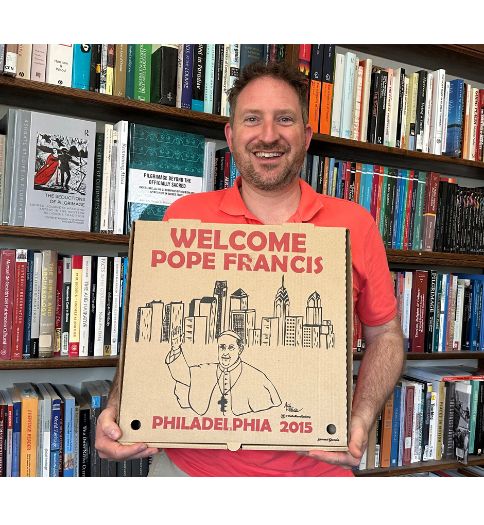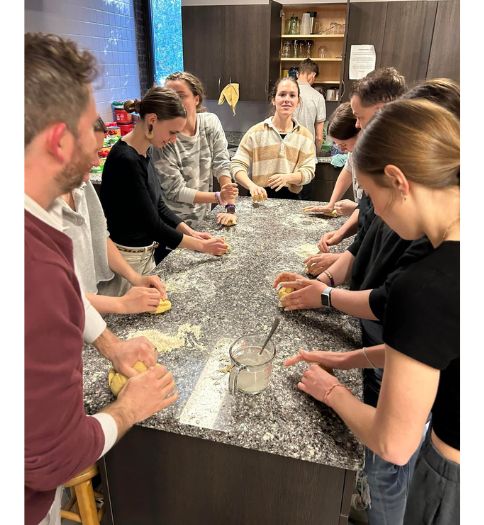WCU Anthropologist Studies Pope Francis' Relevance Across Generations

The recent death of Pope Francis has brought renewed attention to the people and ideas that defined his papacy – like the concept of the “everyday saint,” a term Pope Francis championed throughout his ministry. This idea of holiness rooted in ordinary life resonates powerfully in the stories of both Pope Francis and Italian teenager Carlo Acutis, a soon-to-be canonized saint who died in 2006, said Dr. Michael A. Di Giovine, professor of anthropology at West Chester University.
Their lives, Dr. Di Giovine said, suggest that sainthood is not about perfection, but about being available to others, grounded in compassion, and committed to something greater than oneself. Acutis’ canonization was expected to take place during the Catholic Church’s 2025 Jubilee Year, but following Pope Francis’ death on Easter Monday, the process has been delayed, as Church leaders focus on the transition and upcoming conclave.
A socio-cultural anthropologist, Dr. Di Giovine has emerged as a key voice on modern sainthood, pilgrimage, and the Church’s efforts to stay relevant in a digital age. His recent work on Acutis, featured last year in The Conversation, explored how a teenager who played video games, wore Nikes, and coded websites became a global spiritual figure. Dr. Di Giovine also discussed Acutis and Pope Francis in a recent episode of Vox’s podcast Today, Explained and The Psychology of Pilgrimage podcast. The Vox segment was also featured on NPR.
Dr. Di Giovine’s academic interest in saints began with Padre Pio of Pietrelcina, one of the most recognized figures in 20th-century Catholicism. Dr. Di Giovine’s research into Pio’s life and legacy laid the groundwork for understanding how saints resonate across generations. But it’s Acutis, who has been called the “patron saint of the internet,” who captivated Dr. Di Giovine’s students and broader audiences alike.
“You could put yourself in his Nikes, which my students do,” he said.
Each year, Dr. Di Giovine leads WCU students on a 5-week study abroad field school to Italy, visiting sites tied to both Acutis and St. Francis of Assisi. What begins as an academic excursion often becomes something more meaningful. Students, many who are not religious, find themselves unexpectedly moved by Acutis’ story and the environment around his tomb in Assisi.
“We were just walking around doing our typical tour,” Dr. Di Giovine said of his first encounter with Carlo Acutis years ago. “His picture was everywhere. The students asked, ‘Who is this kid?’ And we went on a kind of scavenger hunt to find his burial site.”
That fascination has only grown. Dr. Di Giovine teaches them how to conduct ethnographic research. In 2016, he even brought students to Rome during Pope Francis’ Jubilee Year of Mercy, where they saw the Pope in person and visited Padre Pio’s body in St. Peter’s Basilica.
Back on campus, Dr. Di Giovine strives to ensure his classroom is a space that welcomes
a range of thoughts. Whether sharing a relic of Padre Pio’s blood or giving a pasta-making
lesson tied to saints’ lives, he encourages students to engage with religion as a
cultural force. 
Dr. Di Giovine sees ambiguity as a success. To him, it means students are thinking critically and keeping their minds open. They’re learning how to think about belief, not what to believe.
“I try to bring these concepts into the classroom in a way that straddles both worlds of thought,” he said. “That I can model the idea that you can have your own individual relativistic approach to learning about saints, but still understanding that some people, maybe even myself, would believe in this.”
